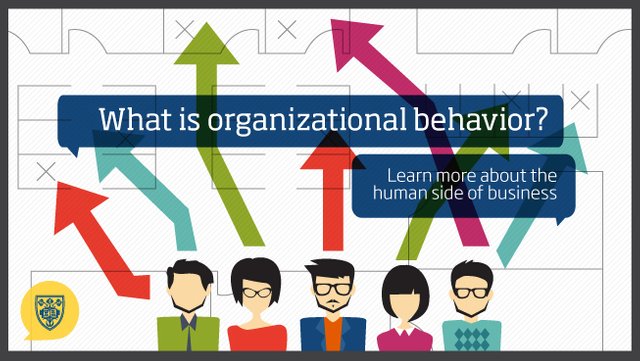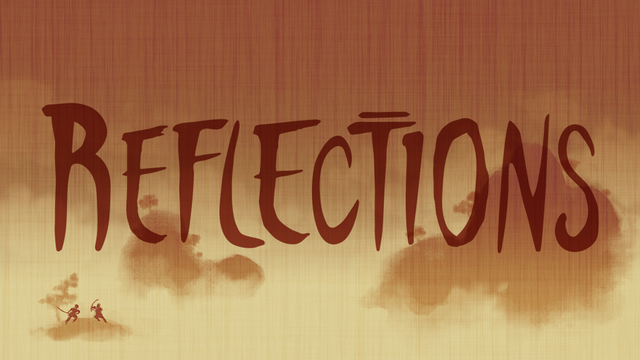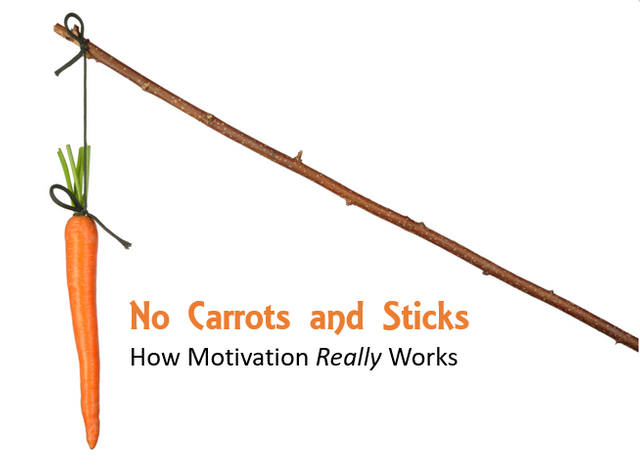OB Series #1: History of Organizational Behaviour
If you've been following my posts, you will see that I have been formally introduced to OB (Organizational Behavior) in one of our classes for the MBA Program. With this, I'd like to share some of the theories and reflections that I had on all our readings. All of these concepts are very useful in any organization, but I will start with the boring stuffs. :D

Source: The College of St. Scholastica
Let's get started with a very basic definition of Organizational Behavior. Basically the bottom line of OB is to explain and predict behavior within an organization. And the formal definition of this is as follows.
"Organizational behavior (OB) is the study of the way people interact within groups. Normally this study is applied in an attempt to create more efficient business organizations. The central idea of the study of organizational behavior is that a scientific approach can be applied to the management of workers. Organizational behavior theories are used for human resource purposes to maximize the output from individual group members."
Source: Investopedia - Organizational behavior
The first part of our readings talks about the History of Organizational Behavior. Particularly how OB came to be, it discusses mainly about the development and the challenges that a lot of people had in trying to develop a lot of OB concepts. Again, this write-up is not mean to give you an overview on the history of OB but more of a reflection on the classic reading materials that we had.
So without further ado, let's get to the boring stuffs "My Journal / Reflections"

Source: Kickstarter
Overall, we are quite thrilled to have a class “Organizational Behaviour”. For most of us, we have been informally exposed to some of the concepts without really seeing the big picture. Oftentimes, we just normally stick with the traditional and conventional approaches such as the so called ‘Carrots and Sticks’. We’ll the idea is straightforward, if you do well, you will be rewarded; otherwise, you will be punished. But this is already a thing of the past, and it’s very great to know that there has been a lot of efforts made to study the science behind how humans behave in organizations. This is not just limited to this, but a lot of people are also actively finding ways to innovate and search for better ways to apply the theories and science in managing employees, or every member of any organization in general.

Source: Go Beyond the Sky - Motivational Leader
The first part of the readings gave us a brief overview of how OB started and discussed a bit on the recent advancements and the future direction of the field. The readings was more on the history of how things came to be, but there are also significant events that could give us not just a preview, but some invaluable insights as well.
“Organizational studies is a fragmented field. Each field of inquiry focuses on different phenomena, employs different research methods and makes different assumptions about the nature of people and about organizations and their purpose in society. This diversity has prevented the emergence of a common language or theory of organizations.” Beer has attempted to synthesize these diverse perspectives by adopting the meta frameworks and assumptions about the nature of people and organization. (Katz and Kahn, 1978; Pfeffer, 1997; Schein, 1970; Schein, 1990; as cited in Beer, 1998, p. 98)
As students, we should continue to immerse ourselves with the past research and discoveries regarding organizational studies. Our focus here should be to soak in the knowledge, that way as we finish the course, we will be able to apply it in our respective workplaces. As future business leaders, and maybe educators, it is our burden and responsibility to contribute in any way we can to further the study. As stated in the article, organizational studies is a heavily fragmented field, and each of us, in our various fields of practice could contribute resources and share results, to aid, support and promote further studies.

Source: Workplace Funding Ideas
This approach was proven to be very effective as shown by Edward Feeney. “Ed Feeney, who was at the time a Sales Manager for Emery Air Freight, attended one of the workshops in the mid 60s at the University of Michigan. He designed a programmed instruction sales training package for Emery which led to substantial improvements in sales. Feeney returned to Michigan’s CPBL and attended the Management of Behavior Change workshop. Following this workshop, Feeney installed behavioral systems throughout Emery that produced a two million dollar increase in annual profits (O’Brien, Dickin-son, & Rosow, 1982, p. 459).” (as cited in Dickinson, 2000, p.26-27).
Edward is a Sales Manager, he was just like the most of us, but when equipped with knowledge through workshops, he was able to make good use of programmed instructions to improve sales and use behavioral systems to boost annual profits. In the same way, here at BA 251, we will also be exposed to a lot of concepts regarding “Organizational Behavior”. After which, we are expected to wield this knowledge, put it to good use by applying these concepts and strategies to our respective workplaces. But let us not stop from there, as there are still a lot of things we can do. For instance, “Feeney widely publicized his successes (At Emery Air Freight Positive Reinforcement Boosts Performance, 1973; Business, Behaviorism and the Bottom Line, 1973; Conversation with B. F. Skinner, 1973; Laird, 1971; New Tool: Reinforcement for good work, 1971; Performance Audit, Feedback, and Positive Reinforcement, 1972; Where Skinner’s Theories Work, 1972) and captured the attention of the business community (O’Brien & Dickinson, 1982).” (cited in Dickinson, 2000, p.26-27). As simple as documenting how we apply the different strategies and the results, we are already contributing to the study of Organizational Behavior. Our results can confirm and support claims and theories, it can also lead to further studies and discoveries. Now, if we look at this in a wider perspective, and if more and more people will start contributing to the organizational studies, there are no limits as to how this field can grow and will grow..

Source: PixaBay
Despite our efforts to contribute to this field, we will not be immune to criticisms. Sometimes people will literally scrap our findings, make ill of it, regardless of how noble and good our intentions are. “Critics of behavior analysis claimed that while behavioral principles could be used to train a rat to press a lever, they were too simplistic to teach or account for complex human repertoires.” (cited in Dickinson, 2000, p.25) This critic was still from 1995, and we expect that there a lot more after this. But this did not stop the forerunners of Behavior Analysis. They continued with their research programs, studies, and education efforts to give us the materials and resources that are proven to be invaluable at this point in time.
That ends my journal for our first reflection. I understand that this is really boring, but I will be introducing a lot of interesting theories and stuffs on the next series.
Thanks for reading! Have a great day.
Cheers,
Kaizen

Vote Jepu for witness
- Go to https://whaleshares.io/~witnesses
- Click jepu and if it turns blue. You already voted jepu